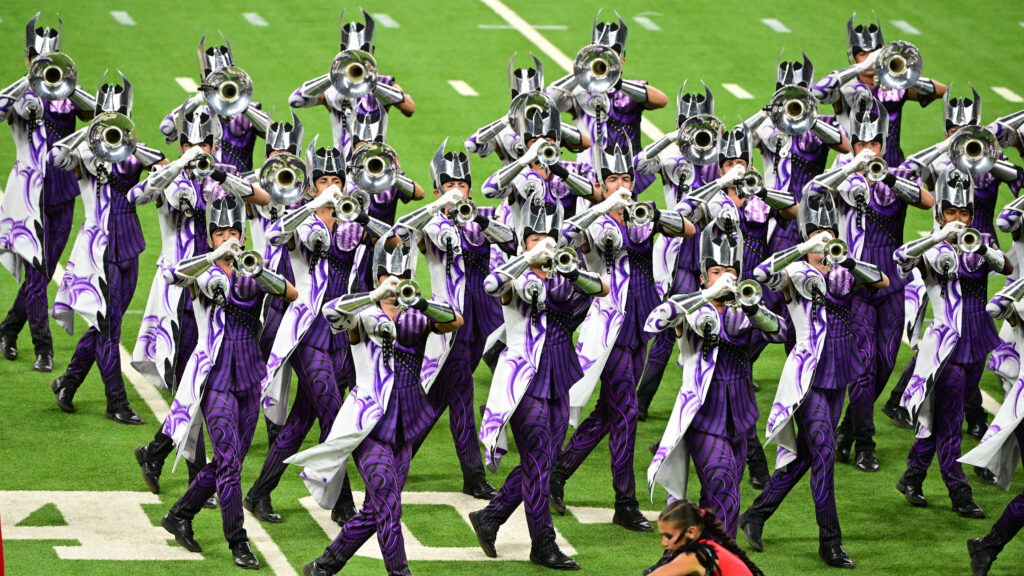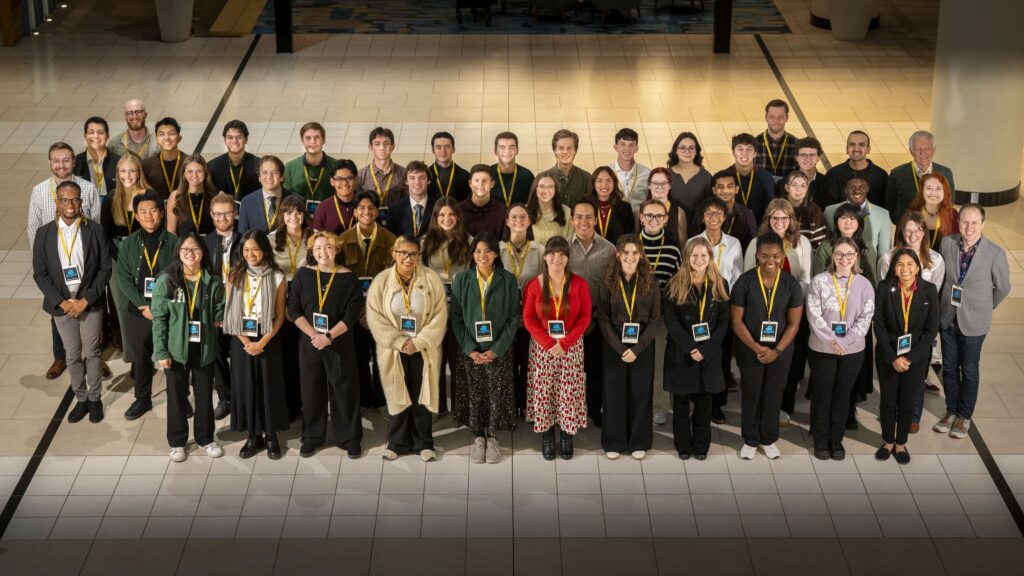The following was sent in by Brian Hogan. I was just browsing through some of the Fanfare archives on the DCI Web site and stopped at the one from December 25, 2003, “Beyond the Call of Duty: Dave Kampschroer.” I found the story to be quite inspirational, like many of the Fanfare articles. Basically, the writer, Paul Milano, had stated that when he was marching with The Cavaliers during a particular low time in the corps history, Dr. Kampschroer, as director of the Blue Stars, had asked to speak to The Cavaliers after a particularly poor showing. The Cavaliers were disheartened and angry, as this proud group had just been handed their hat. While talking to them, he simply reminded them of who they were, where they had come from and said that things would get better. He told them that young corps and indeed young people “needed” the Cavaliers to be leaders, regardless of their placement. Those words of encouragement stuck with many in the Cavaliers and helped them to struggle through a hard patch, which was a time when an icon in drum corps could very well have folded their tent. The rest, of course is history. That got me thinking about people like Dr. Kampshroer. Through my best friend, I had the opportunity, over a period of a few years, to meet a number of big names from the early days of DCI; Dave Kampschroer, George and Patsy Bonfiglio, Bill Howard and the late Jerry Seawright. When my marching days were coming to an end in the early 1970s, there were more “circuits” in drum corps than there are in a Cray computer. Something had to be done to corral all of this activity into something that made sense. It was at this time that folks like these were building the drum corps activity into a cohesive and homogenous activity, which had nothing but a bright future. What was their motivation for doing this? It was a tremendous amount of work and worry. Could it have been some sort of selfish desire to mark their place for posterity? I highly doubt it. At the 2001 DCI World Championship Finals in Buffalo, N.Y., my wife and I had just spent the evening at Ralph Wilson stadium with my two closest friends (both of whom I’d met through drum corps) and their wives and with John Jones, who was the director of DeLaSalle Oaklands when DCI was being formed. After the show, my wife and I returned to our hotel and went into the bar for a final drink. I figured that it would be a nice way to cap off a splendid evening. Sitting at a table were Dave and his wife Barb, George, Patsy, Jerry and Hugh Mahon. (I had met Hugh many years prior, when he came to work with my corps.) They very graciously asked us if we’d like to join them. After a few minutes, I came to the realization that I was sitting and having a sociable with some of the very people who raged against the machine in the early 1970s and who built the foundation for what DCI is today. The startling thing to me was that they were all really nice human beings. Hey, these were folks who had every right to sit back and aloofly rest on their collective laurels, while staring down their noses at the great unwashed … me. It stands to reason that they have legions that are proud to call them friends and mentors. We really didn’t talk much about drum corps, but more about … you know … stuff. I’m not at all surprised when I hear stories like the one related in the Fanfare article mentioned above and some of the others I’ve heard and read about since the passing of both Jerry Seawright and Col. Truman Crawford. It seems to me that all of these individuals (and the many more like them in drum corps who I haven’t had the privilege of meeting) are selfless people who got involved in this activity for reasons other than self-gratification. Perhaps it’s the desire to give back something or the joy of sharing an interest. Yeah, some complain about the long hours and hard work, but I’d wager that if pressed, they’d say without exception, that they’d do it all again. That’s just the type of people they are. I don’t pretend to have any insight into what motivates someone to take a large chunk of his or her life (and in some cases hard earned cash) and dedicate it to a cause or activity. I know that there are a good number of people who could tell horror stories about coming close to losing homes, businesses and families, because they had sunk their personal assets, hearts and souls into a corps in order to keep it afloat. It seems to me that drum corps, like many other activities, is largely reliant on volunteers. I know that even going back to when I was a marching member, the folks who ran and instructed my corps were not getting rich off of drum corps and I suspect that the same holds true today. I suppose the old adages like, “‘Tis better to give than to receive” and “You only get out of something what you put in” apply. Some of the folks that I mentioned above likely got involved “off the street”, or because their children were involved and they used their organizational experience to guide their particular organizations. (Is it just me, or does it seem that many of these people come from an educational background?). God love them for it. Today, if you look at the rosters of corps’ management and instructional staffs, there are a great number of people who have had previous involvement in corps as marching members. The mix of the two keep drum corps from becoming a self-absorbed activity, attractive to only those already, or previously involved. If not for the involvement of these folks and people like Don Warren, Gail Royer, Jim Jones, as well as Don Daber, Al Tierney, Barry Bell and Brother Xavier in Canada, drum corps wouldn’t exist in its current state. I know I’ve left out a good number of people from this list, but that’s the beauty…you could keep adding until the cows come home. I’d be blind and foolish if I didn’t learn a little something here. Not everyone can be this dedicated, but thank God for those who are. You and I wouldn’t have anything to write about, now would we? And to those folks and the many more like them, in case no one has said it for some time, from just another face in the line, thank you.
Michael Boo has been involved with drum and bugle corps since 1975, when he marched his first of three seasons with the Cavaliers.
He has a bachelor’s degree in music education and a master’s degree in music theory and composition.
He has written about the drum corps activity for over a quarter century for publications such as Drum Corps World, and presently is involved in a variety of projects for Drum Corps International, including souvenir program books, CD liner notes, DCI Update and Web articles, and other endeavors. Michael currently writes music for a variety of idioms, is a church handbell and vocal choir director, an assistant director of a community band, and a licensed Realtor in the state of Indiana. His other writing projects are for numerous publications, and he has published an honors-winning book on the history of figure skating. His hobbies include TaeKwonDo and hiking the Indiana Dunes. But more than anything, Michael is proud to love drum corps and to be a part of the activity in some small way, chronicling various facets of each season for the enjoyment of others.





